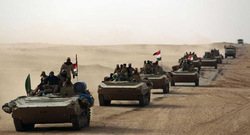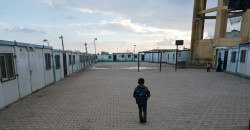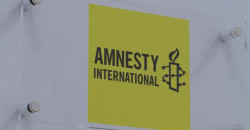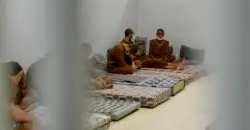EXCLUSIVE: Syria’s education system set for major reform
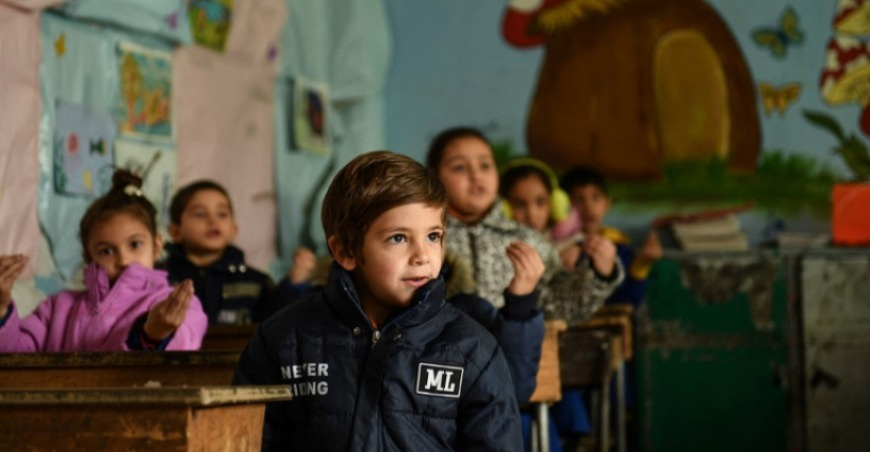
Shafaq News/ Syria’s education system requires urgent reform, but a structured, well-funded approach is essential, according to Mohammad Saed Qaddour, the Director of Education at the Syrian Ministry of Education.
In an exclusive interview with Shafaq News, Qaddour emphasized the need to modernize educational content to keep pace with scientific, technological, and political developments while removing ideological influences from the curriculum.
Curriculum Reform: A Long-Overdue Overhaul
Less than a month after the fall of President Bashar al-Assad’s regime and the takeover of power by the "Military Operations Administration," Syria’s Ministry of Education ordered a nationwide curriculum revision affecting all grade levels.
The changes primarily included the removal of the national education subject, the elimination of all phrases, images, and lessons related to Al-Assad’s regime across all subjects, as well as modifications to Islamic education, history, and English language courses.
Qaddour hailed the changes as necessary, stating, “Syria’s current curriculum is deeply entrenched in political ideology.”
“Our priority is to eliminate the glorification of the previous regime, which perpetuated dictatorship and personality cults,” Qaddour clarified. “However, reforms must be purposeful and well-planned, not arbitrary.”
He emphasized the importance of updating school curricula at least once every decade to reflect advancements in science, technology, and global political developments. “Education reform is a complex process that requires training workshops, expert consultations, and a phased implementation strategy over four years,” Qaddour explained.
He cautioned against rushed changes, warning that “hasty reforms risk creating inconsistencies and gaps in education quality.”
Private Education: Between Expansion and Monopoly
Discussing private education, Qaddour highlighted stark contrasts between opposition-controlled and regime-held areas.
“In liberated areas, private schools have expanded rapidly, offering competitive services and lower tuition fees,” he said, though he noted that “the oversaturation of schools has led to underfilled classrooms.”
In contrast, private education in regime-controlled areas is dominated by political elites and the wealthy, creating a monopoly that has driven up tuition fees and overcrowded schools. “Education has become a privilege rather than a right,” Qaddour lamented.
According to statistics by the Director of Private Education at the Ministry of Education, approximately 15% of Syrian students are enrolled in private schools as of April 2024.
Qaddour called for stronger public education systems to ensure accessibility and stricter regulation of private schools to prevent exploitation. “Education must remain a fundamental right, not a commercial enterprise,” he stressed.
Tackling Illiteracy and School Dropouts
The United Nations Office for the Coordination of Humanitarian Affairs (OCHA) 2024 annual report estimates that over 2.4 million Syrian children are currently out of school, with 46% being girls and 54% boys. Additionally, more than one million children are at risk of dropping out again.
The provinces with the highest rates of out-of-school children include Idlib (69%), Raqqa (48%), Damascus (46%), Rural Damascus (40%), and Aleppo (38%).
Local Syrian organizations report that illiteracy rates in displacement camps in northern Syria have risen to approximately 50%, while 80% of children in these areas have not completed secondary education.
Qaddour described these statistics as “a crisis demanding urgent action.” He outlined plans to reintegrate out-of-school children and expand literacy programs, including “a partnership with the Ministry of Culture to launch adult literacy initiatives.”
“For younger dropouts, an accelerated learning system is being considered to help students catch up and reintegrate into mainstream education,” he explained.
Hijab: Between Tradition and Misconception
Addressing the controversy surrounding the hijab, Qaddour dismissed claims linking Islamic dress to extremism. “The fear surrounding the hijab stems from an illogical association with radicalism,” he stated.
He pointed out that “modesty has historically been a universal symbol of purity,” referencing religious depictions of the Virgin Mary. “Modesty is not exclusive to Islam; it is a common principle across monotheistic religions,” he added.
Criticizing past government policies, he condemned Rifaat al-Assad’s forced removal of hijabs in Damascus, calling it an “assault on personal freedoms.” “Our goal is to uphold freedom of choice, not impose restrictions,” he asserted.
